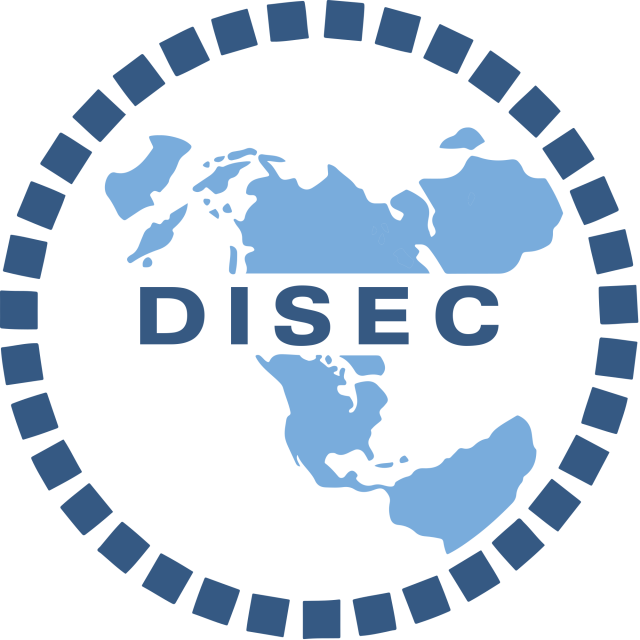Committee Overview
The United Nations (UN) Disarmament and International Security Committee (DISEC) was created as the first of the UN’s Main Committees when the UN Charter was signed in 1945. Because of this, DISEC is also known as the First Committee. DISEC was set up to provide countries with a space to discuss issues related to peace and security. According to the UN Charter, DISEC’s role in the General Assembly is to help set “general principles of cooperation in the maintenance of international peace and security,” including disarmament and arms control. DISEC can also make recommendations to the UN members or the Security Council. While DISEC cannot directly influence the Security Council’s decisions, it can suggest topics for the Security Council to consider. DISEC works closely with the UN Office for Disarmament Affairs (UNODA), which was created in 1998. The UNODA focuses on all levels of disarmament, such as nuclear weapons and conventional weapons, and helps DISEC achieve its disarmament goals.
Topic A: Lethal Autonomous Weapons Systems
Lethal Autonomous Weapons Systems, or LAWS, are machines that can find and attack targets on their own. They do not need a person for control or to give orders. These weapons use computer programs and sensors to decide when and where to strike. Some of them even use artificial intelligence (AI) to decide to attack. Those who support this technology say it can protect soldiers by removing them from dangerous situations. They also believe the weapons can make missions more accurate. Others are worried. Critics say LAWS might not follow international laws, could hurt innocent people, and may not accurately distinguish between enemies and civilians. Further, if a machine makes a mistake, it is unclear who would be responsible. Because of these concerns, United Nations Secretary-General António Guterres has asked countries to agree on rules for LAWS by 2026. He stated that any weapon which humans cannot fully control should be banned, and that the weapons are a danger to human rights and global safety. Now, delegates in DISEC must decide what role LAWS should have in future wars. This topic gives delegates a chance to consider how war is changing and to help create new rules for modern conflict.
Topic B: Small Drone Warfare
Small drones are becoming more important in today’s wars. Using drones for precision strikes is not new, but they are becoming increasingly prevalent. First-person-view (FPV) drones are small, cheap, and easy to fly. They can carry small bombs or gather information. Because they are so affordable, some countries are spending less money on big, expensive weapons and using more small drones instead. For example, in the war between Russia and Ukraine, both sides are using FPV drones. In Ukraine, some workshops are making up to 100,000 drones every month. Drone usage also brings up serious legal and moral problems. Long-distance drone attacks are not always accurate. They can hit the wrong targets and kill innocent people. Still, some countries prefer it because a drone that costs about USD 1,000 can destroy a tank worth millions of USD. FPV drones are changing war strategies and saving money, but there are big legal questions to answer. Delegates will need to consider who is responsible if a drone makes a mistake and if countries are following the rules of war when using drones. Delegates in DISEC need to help create fair and clear international rules to guide the use of FPV drones in future conflicts.

